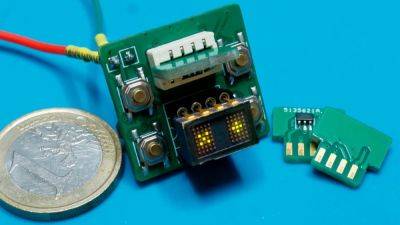OpenAI’s First In-House Chip Will Be Developed By TSMC On Its A16 Angstrom Process For Its Sora Video Applications, Move Will Also Boost Apple Device Sales
TSMC has yet to commence mass production of its A16 Angstrom process, but there are whispers doing the rounds, clamoring about its superiority, which is no surprise given that Apple has reportedly placed orders with its foundry partner in advance. However, the latest information states that OpenAI is also developing a custom chip on the same technology, as it looks to boost Sora’s video-generation capabilities.
Industry insiders report that OpenAI was in active talks with TSMC about developing a dedicated foundry for its custom chip, but those plans were canceled
The AI race has forced notable technology giants to pursue the development of custom solutions to keep them ahead of the pack. For instance, ByteDance, the parent company of TikTok, was recently said to have partnered with U.S. firm Broadcom as it aims to mass produce an in-house AI chip on TSMC’s 5nm process. OpenAI has its sights set on the heavens, as Economic Daily News reports that it is in discussion with the semiconductor giant to construct a new fabrication plant that will be responsible for developing this chip.
Related Story China’s In-House Chips Are Said To Be Just Three Years Behind TSMC, US Curbs Show Little Impact
Unfortunately, the report states that after carefully assessing various factors, including profitability, the plan was ultimately scrapped. While ChatGPT is integrated with Apple Intelligence, OpenAI’s decision to shift towards TSMC’s A16 Angstrom process could have a deeper reason. The in-house chip is said to boost Sora’s video-generation capabilities, which may help boost Apple’s device sales as the feature will be integrated into the company’s generative AI features suite.
It is possible that OpenAI and Apple are working closely together on this project, as the latter has years of experience developing chipsets that outpace the competition, but nothing has been confirmed yet. However, it will take a while before this chip enters mass production because TSMC’s A16 Angstrom process







